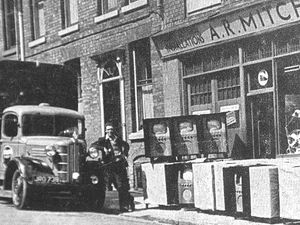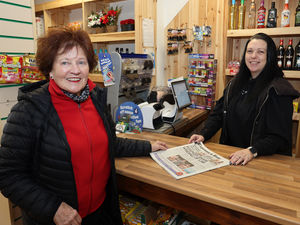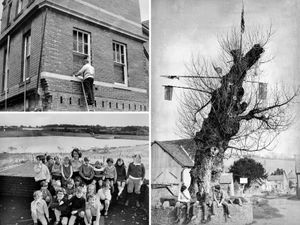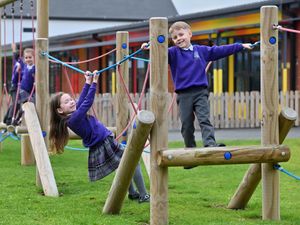How the Poppy Appeal helps veterans Battle Back from adversity
Golf pro Mark Shervill addresses a small group of players in the glorious autumn sunshine.
"You don't grip the golf club," you hold it, he tells his charges. "A golf swing is something you need to be feeling, not something you need to be thinking about."
But the players he is teaching are not wealthy hobbyists looking to reduce their handicap, or the stars of tomorrow trying to reach the next level. They are serving military personnel using sport to help them battle back from adversity.
Mark, who has worked with big-name stars including Swedish player Henrik Stenson, regularly gives his time to work with the Royal British Legion Battle Back Centre in Lilleshall.
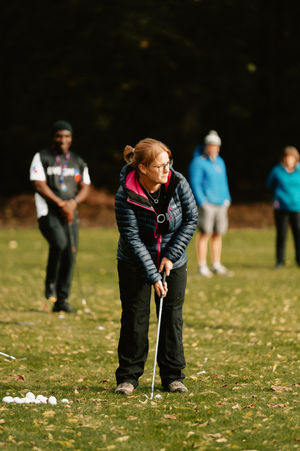
He uses analogies, comparing golf to their own experiences, as he gives his lessons. He tells them that every stroke they ever play will be different, just as every day of their life is unique. He urges them to soak up the atmosphere, enjoy the view, and heighten their senses to what is going on around them. To forget about the past and the future, and just enjoy the moment.
"Life is so fast-paced these days, there are so many things like phones and iPads competing for our attention. The idea is that they come out here and stop thinking about things."
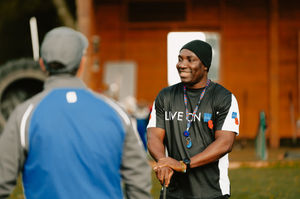
Since its launch in 2012, the Battle Back Centre has helped more than 7,000 service personnel and veterans recovery from illness and injury, both physical and mental. Some of them may have been wounded in the battlefield, others may have mental scars which emerge in later life, but everyone who comes through the door is given help and support to overcome whatever difficulties they may be facing.
But this all costs money. Lots of it.
The centre opened in 2012 with a £27 million grant from the Royal British Legion, the lion's share of the charity's record-breaking £50 million donation to provide support with the growing number of casualties returning from Iraq and Afghanistan. But that was just the start of it.
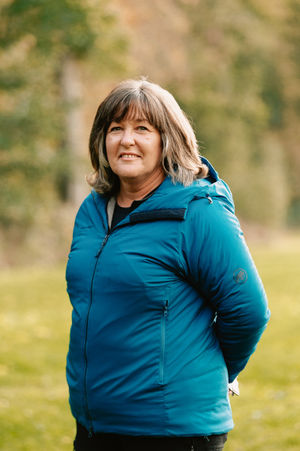
Sally Green, assistant recovery manager at the centre, says £2.5 million needs to be raised every year just to keep the centre ticking over.
All of that comes from the poppy appeal, and Sally fears that this year's fundraising effort will be badly hit by the coronavirus, as it will mean fewer collectors on the street, and less money raised from collecting tins in the workplace.
"A lot of the volunteers you see on the streets won't be there this year, as they will be shielding," she says. "We're expecting it to be a really difficult year."
Back on the golf course, Mark says he feels his work with Battle Back is more important even than coaching some of the world's top pros.
"The professionals are already great players, earning lots of money, but what we do with these people makes such a difference," he says.
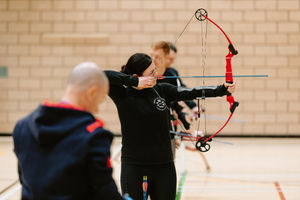
"You get people coming here saying 'I don't know if I can do this', and then you see them doing it."
The Battle Back Centre Lilleshall was chosen for its tranquil location in the centre of the country, easily accessible by road and rail. And, of course, it helped being next to Lilleshall Hall Golf Club, which has been a major supporter of the charity over the years.
The centre, which was created in a previously dilapidated gym and tennis centre, now offers 24 bedrooms – 16 of which have been adapted for disabled veterans – as well as an archery centre. Sally says centre users also go clay-pigeon shooting at West Midland Shooting Ground, near Market Drayton, take part in water sports at RAF Cosford and do climbing at an activity centre in Wolverhampton.
There are also trips to the bowling alley at Shrewsbury Sports Village.
"That is a slightly more restive activity, after climbing on a Tuesday," says Sally. "Although when there are different regiments involved, it can get quite competitive."
Since its launch eight years ago, Battle Back has seen more than 7,000 veterans and servicemen through its doors.
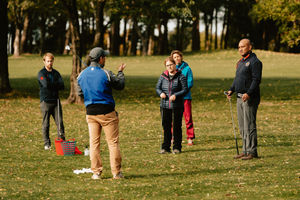
Ian Breeze had served in the Royal Marines for 27 years, taking in three tours of Afghanistan. But when he broke his neck and back in a cycling accident in 2017, he thought his life was over.
Last year he cycled 285 miles from London to Paris on a sponsored bike ride to raise funds of the Royal British Legion, attributes his recovery to the support he received from the Battle Back Centre.
“It would be easy to let something like this get you down in the dumps but Battle Back put that in perspective for me,” says Ian, from Cannock.
“It made me realise you can’t sit at home feeling sorry for yourself, you only live once and you’ve got to get out there and do things.
"For me the highlight was sharing the experience with other veterans and talking to them about what they had been through and how they were overcoming their injuries and difficulties as well as sharing my experience."
He adds that some of the coaches have been through difficulties themselves, and says looking at how far they had come made him realise that he too could get back to normal.
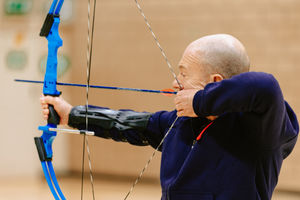
But there is science behind the work at Battle Back too. Sally says Battle Back is the only recovery centre in the UK which also carries out research into the effects of sports therapies, with a resident team from Leeds Beckett University compiling detailed data on the long-term benefits.
She produces a chart which shows mental well-being levels still being much higher, 12 months after a five-day course at the centre. The next stage of the research will be to calculate a financial benefit to the nation resulting from improved mental health.
"There will be socio-economic benefits, if an individual doesn't have to visit the doctor, and they don't have to go to A & E, and don't have mental health problems, then that is going to reduce the cost to the NHS," she says.
For Sally there is a very personal reason behind her involvement with the charity.
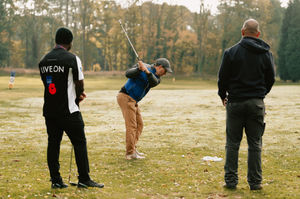
"My daughter was in the Navy, and she became very ill," she says. "The first time she had a mental breakdown, she ended up coming here, so I had got some experience, and understand the work that is being done."
Sally, who worked as an advertising manager before joining the Battle Back team in 2017, says appearances can often be deceptive, with many apparently smart and confident young people.
She adds that problems such a post-traumatic stress disorder can manifest themselves many years after they leave service. He says it is not unusual for retired servicemen to present themselves with problems resulting from the Falklands War in 1982.
"I don't think people can predict in life when they are going to be affected, it's usually when tectonic plates in their lives collide," she says.
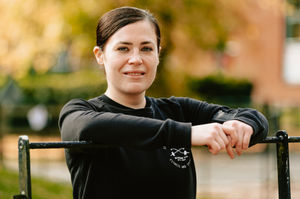
Trying out the course for the first time is acting corporal Megan Evans, based at the Department of Community Mental Health at Venning Barracks in Donnington, Telford. The 26-year-old is at Battle Back to find how the programme can benefit soldiers who come to her for support. She says one of the things that impressed her most was how it gave people the confidence to open up about things that have been troubling them.
"It gives people the confidence to speak about thing if they are out there," she says.
"It helps someone in terms of mental health if they can enjoy a relaxed environment."
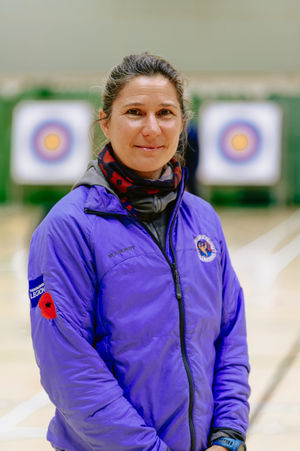
Michaela Barwick, 48, from Newport, is the programme manager, employed by Leeds Beckett University, who has been at the centre since 2014. She says with the right help, anybody who comes to the centre should be able to participate in the sports on offer, even if that sometimes means a bit of teamwork..
"You might get someone who has lost the use of their legs, and thinks they can't ride a bike, but we might team them up with somebody who hasn't got an arm-function, and they can help each other," she says.
"The sports we offer here are all achievable. You get people here thinking 'I can't do that', and when they leave they have done it."
* To support this year's Poppy Appeal, visit britishlegion.org.uk/get-involved/ways-to-give/donate , or telephone 0845 845 1945. Alternatively, text POPPY2 to 70545 to donated £1, POPPY5 to 70545 to donate £5, and POPPY10 to 70545 to donate £10


